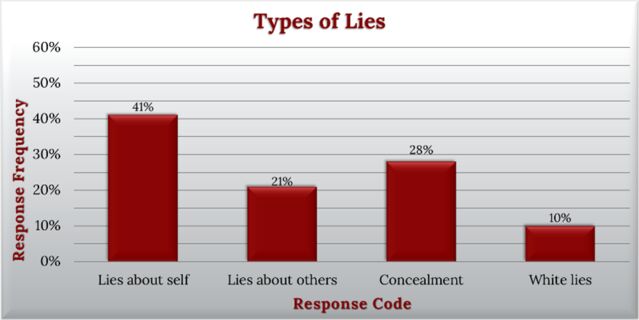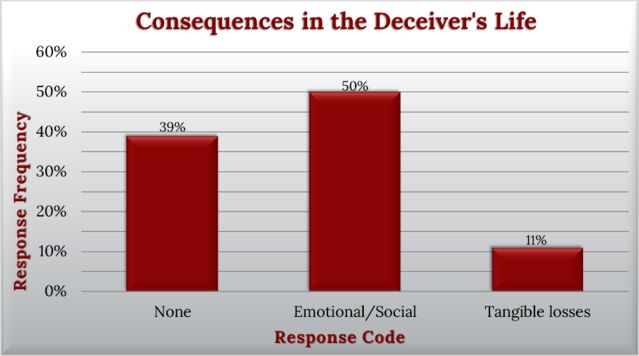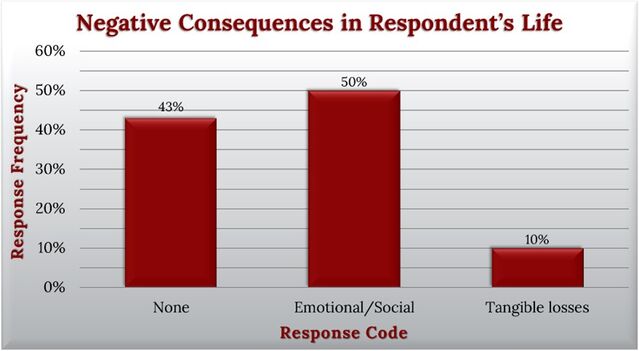Deception
Have You Ever Met a Pathological Liar?
Most people have had negative experiences with pathological liars.
Posted April 22, 2022 Reviewed by Tyler Woods
Key points
- Most people have interacted with pathological liars.
- Pathological liars tell 10 or more lies per day.
- They primarily tell self-serving lies.
- Their unbelievable lies are usually what gives them away.
This article is co-authored with Renée Beach, my research collaborator and an incoming doctoral student in clinical psychology at the University of Alabama.
Most People Lie
Most people lie. In a given week, about 95 percent of people report lying. Though dishonesty is widespread, thankfully most people lie infrequently, typically telling zero lies on any single day. However, a small proportion of people lie a lot. In our work, we have found that a small group of people in our world (a little more than 5 percent) tell half of all lies. These prolific liars are often referred to as pathological, compulsive, or habitual liars. Perhaps you have had the misfortune of meeting such a person.
Scientific Research on Pathological Liars
Although pathological liars may be a fixture of our society, there has been surprisingly little scientific research on them. There is not a universally accepted definition and theory of pathological lying. However, most people conceptually understand pathological liars as people who tell lies with extraordinary frequency.
Recognizing the need to characterize pathological liars further, we conducted a study focusing on how common it is to interact with pathological liars and the nature of those interactions. We predicted that most people would report having contact with a pathological liar and that they would report that the liars told primarily self-serving lies.
We conducted a study in which we asked 251 adults about their beliefs about pathological lying. We also inquired whether they had ever interacted with someone that they believed to be a pathological, compulsive, or habitual liar. People who acknowledged contact with a pathological liar were then asked further questions regarding the types of lies the pathological liar told, how they knew the person was lying, and what the consequences were for the liar and themselves.
The Results of Our Study
We found that 91 percent of respondents believed they had contact with a pathological liar. 100 percent of them indicated that the liar told primarily self-serving lies. They estimated that the pathological liars they knew told 10 or more lies per day. In contrast, they estimated that most people tell approximately two lies per day. They also reported that almost half of the lies told by the pathological liars seemed to be told for no apparent reason.
Further, we asked what the pathological liars lied about, we found the following pattern:

Most of them reported that they knew the person was lying because the lies were so unbelievable.

They suggested that the most common negative consequences for the pathological liars were poor emotional and social outcomes, such as being ostracised or having tumultuous relationships with others.

Likewise, the dishonesty of the pathological liars caused negative outcomes for the people in our study. Those negative outcomes were primarily emotional and social difficulties.

Our study represents an initial examination of people’s experiences with pathological liars. There are no widely accepted diagnostic criteria for pathological lying, and the definitions of pathological lying vary considerably. Overall, most scholars (and the participants of this study) see pervasive lying as a key criterion for identifying someone as a pathological liar. The results of this study present the experiences people have had with pathological liars. Those experiences appear to be quite common and overwhelmingly negative. These findings may serve as a starting point for understanding the roles of pathological liars in our society.


